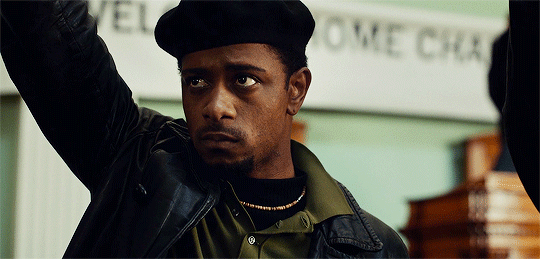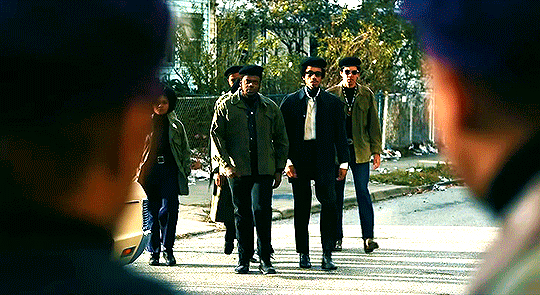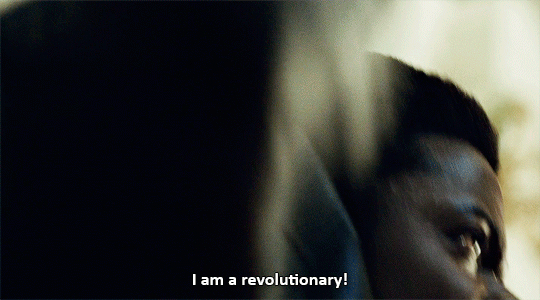“America’s on fire right now and until the fire is extinguished don’t nothin’ else mean a goddamn thing.”
For a narrative so crucially important and timely to American history then and now, I expected to be blown away by the rise and ultimate demise of Fred Hampton, the Chairman of the Illinois Black Panther Party. What I got wasn’t that, and I’m left wondering how could they miss the mark with this one?
I was completely onboard for this movie when I found out it starred Daniel Kaluuya (Get Out) and my boy LaKeith Stanfield (Sorry to Bother You). Biopics are tricky to deliver, but if you’re looking for a biopic on Fred Hampton, this ain’t it.
I’ve said it before, and I’ll say it again – important stories don’t always equal great movies. Read that again.
Judas and the Black Messiah is supposed to be about Fred Hampton, a young, charismatic activist who becomes Chairman of the Illinois chapter of the Black Panther Party and his brutal demise in the hands of the government, the FBI, and the Chicago Police. But what the movie is really about is the informant planted by the FBI to crush the revolution.
Director Shaka King described the initial idea for the film as “The Departed (2006) inside the world of COINTELPRO (Counter Intelligence Program).” He thought it was a clever way to “sort of Trojan-horse a Fred Hampton biopic and introduce the world, you know, a great segment of the world who is unaware of who he was, and is highly unaware of the Panthers’ politics and ideology.”
And that’s the problem. I felt more focused on Bill “Snitch” O’Neal, whose motives are questionable at best, with only a supporting look at Fred Hampton. The entire plot gave me flashbacks to The Departed, but (obviously) with a completely different atmosphere and characters. But let’s be real – this isn’t a Scorsese flick, and that’s said with no disrespect to Shaka King, but there’s a lot of underdevelopment in characters, emotions, and script that I couldn’t ignore.
All I’m reading everywhere is how powerful and important this movie is. If you’re not versed in the names of people in Hampton’s inner circle, you’ll be confused and struggle with remembering who is who; characters come and go constantly with little to no character development. I wanted to care about Hampton, his message, the revolution, but I was left wanting more.
There’s a clip at the end of the movie that features the only interview with Bill O’Neal, which offered more insight into his character than the actual movie itself. It made me wonder if I should watch the 1990 documentary Eyes on the Prize II instead of the slow two hour burn that is Judas and the Black Messiah.
“The approach King and co-writers Will Berson and Kenneth and Keith Lucas take to this narrative doesn’t undermine the cast’s brilliant performances, or the impact of certain poignant moments. But their uneven methodology robs Judas and the Black Messiah of the propulsive energy it could have.” via Polygon
The only things I felt as the credits rolled were a profound sense of disappointment and frustration that this biopic could and should have been better. I can scratch the service on who Fred Hampton was as a person, but I’m left wanting more. A lot more.







I really wanted to see this because of Kaluuya but after reading your review I’m not sure I want to anymore.
Don’t listen to me fully…it’s definitely worth seeing, but just keep in mind what I wrote.
I watched this last night and I liked it quite a bit more than you did, but I also went in knowing that it was more about O’Neal than Hampton, which probably helped. It’s a good companion piece in a way to Trial of the Chicago 7. I think it struggled a bit to get going but the actors were so good it made everything else after that interesting to watch for me.
The acting definitely made the movie..that is for certain!
Hi, watched it last night. I agree with what you say. I’d say the film is about Bill O’Neal, but even then the film is still not that good. It is like The Departed and Betrayed (1988 ) a film directed by Costa-Gavras but never properly delivers the dilemma Bill O’Neal had which we need it in a story like this.
There are some minor characters and sublot that never really develops. Haven’t seen Promising Young Woman yet and I have Hight hopes on that.
Mutlu
It just was a lot to chew on I think, and it felt undercooked. Thanks for commenting!
I too felt it could have been MUCH better. There is so much meaty material that they essentially gloss over. And while Kaluuya here, he once again struggles in the moments that ask him to show softer and more intimate emotion. He has intensity down, but the other is something that has always stood out to me about him. And you see it again here.
[…] Source: onthescreenreviews.com […]